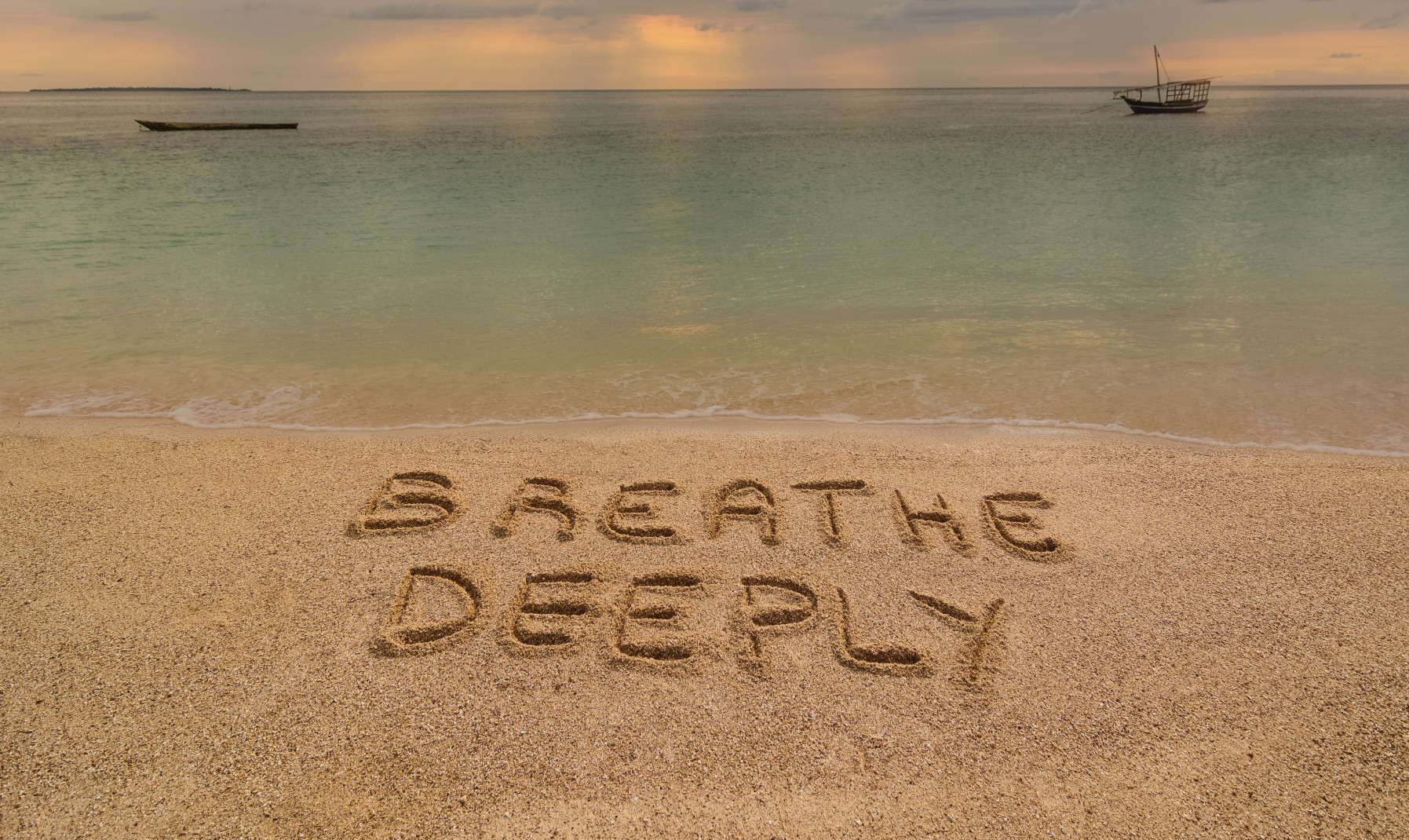1. Focus on the present
The most significant risks to humanity are not immediate, but long-term, Rosmarin explains. The IPCC report is written in urgent language designed to spur action on the part of world leaders; it doesn’t say, however, that we should brace for the end of the world.
So remember that even in the worst-case scenario, it will take two decades for us to reach that climate tipping point—urgent, yes, but a timeframe we can work with. When you find yourself obsessing over the ways in which the environment could collapse over the upcoming years, Rosmarin recommends trying to pull back. “Being aware and taking reasonable action against a distant risk is fine, but being preoccupied is generally not productive,” he notes. In these moments, go for a walk, write down your thoughts, or do something else that calms you and helps you refocus on the present—spiraling over potential issues won’t stop them; it’ll just make you feel more anxious.
This strategy isn’t perfect—some people are already living with the effects of climate change (like those breathing in wildfire smoke in the West), and plenty of people are declining to have children because of fears over the future. But it’s worthwhile, Rosmarin says, if you’re caught up in vague, overwhelming eco-anxiety.

2. Remember that you can live with anxiety
“Anxiety is a normal, healthy emotion,” Doherty says. On a basic level, anxiety is “fear wrapped in a cloud of uncertainty.” It arises when we’re faced with a situation that may or may not be threatening to us—and he describes it as helpful because it prompts us to step inside that cloud and take steps to protect ourselves. “It’s normal for people to feel anxious about climate change or disruption because it has many, many potential threats,” Doherty explains.
But like with other drawn-out stressors like, say, chronic illnesses, divorce, or the pandemic, you can keep living—even thriving—with the anxiety that it causes, Rosmarin says. “Such anxieties do not need to take over one’s life,” he explains.
Rosmarin recalls a patient who worried about her health in the same way many others worry about the environment; it’s natural to worry about the big issues that affect you. He encouraged her to not try to push her anxiety away, but learn to live her life alongside it. “She remarked that it was very empowering to think that she doesn’t need to get rid of her anxiety to have a happy life,” he says.
3. Pay attention to your other emotions
It’s easy to get caught up in a whirlwind of sad, scared thoughts about the environment. But eco-anxiety, by its very nature, comes from a love of the world around us. “I try to get people to see a 360-degree view of emotions in general, and also regarding the environment, so we’re not stuck on just a few different emotions,” Doherty explains.
“Once you start opening that up, you build more capacity to deal with your anxiety,” he says. “People realize they have more emotions in there, such as hope, curiosity, empowerment, or compassion. Once we get a lot of emotional channels going, then that anxiety has better context.”
Although this can apply to any anxiety, it applies especially well to climate change. Reconnecting with why you love nature in the first place, especially by getting outside (which has mental health benefits of its own), can help you pair your negative thoughts with wondrous ones.
4. Develop an environmental identity
Many newcomers to eco-anxiety are not experts on the environment, Doherty says, so he recommends exploring climate issues to create what he calls an “environmental identity.” This is built on your values, connections with nature, life events, and research—much in the same way people come to understand their gender or cultural identity, he notes. With a firm grip on that, anxiety is much easier to manage, and personal growth is more likely.
5. Seek help if you’re having trouble
Confiding in someone you trust is necessary for all of us, Rosmarin says, whether that’s in a loved one, a family member, or a professional. Sharing anxieties, he notes, can help strengthen the bonds between us, leading to happier, more fulfilling lives in general. Plus, verbalizing your thoughts can help you make more sense of them.
This is an especially important step if you’re really struggling with climate anxiety. “People who cannot think or focus on other matters are likely to be experiencing an anxiety disorder,” Rosmarin warns. “If one cannot control their worries—if they feel that they cannot stop worrying—it’s worth having a conversation with a mental health professional.”
Doherty agrees, saying that while “most people” will experience some form of climate anxiety, a smaller group has a climate anxiety disorder that requires help from a professional. (Finding the right one can be tough, but this guide is a great place to start.) There’s a new contingent of climate-identified psychologists and therapists like Doherty, but it’s not completely necessary to reach out to one, he notes.
Resources : Prevention - How to Cope With Climate Anxiety, According to Psychologists
https://www.prevention.com/health/mental-health/a37778476/climate-change-anxiety/
Date of Input: 02/04/2024 | Updated: 18/04/2024 | aslamiah
MEDIA SHARING

























